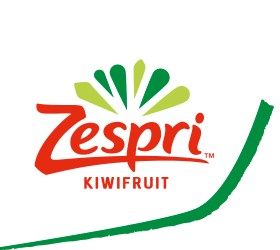Retail produce buyers and consumers are becoming more vocal in their demands for sustainability in growing and handling California summer fruit, and grower-shippers say they’re making an all-out effort to comply with those requests.
“It’s what our customers are asking us to do, and that’s what we’re doing,” said Levon Ganajian, vice president of retail relations for Trinity Fruit Sales Co. Inc., Fresno, Calif. “That’s one of the most important things for our company.”
Trinity Fruit has installed solar panels, adopted a water conservation plan, reduced its use of fertilizer and has responded to customer requests for recyclable packaging and more, Ganajian said.
“We try to use every part of the tree,” he added.
Firebaugh, Calif.-based Westside Produce also makes sustainability a priority, said company President Garrett Patricio.
“We’ve been incorporating sustainable growing practices in everything we’ve done,” he said.
Related: Local Bounti shares ambitious expansion and sustainability goals
The company isn’t just doing things sustainably to comply with the desires of its customers; it aims to meet its internal goals as well.
“We don’t add anything to the crop that it doesn’t need,” Patricio said.
“We employ and use drip irrigation to the extent possible to reduce water usage, and we’ve incorporated solar in almost everything we’ve done,” he said. “Our facility is basically 100% solar-supplied.”
That has reduced the company’s demand on the power grid.
Nearly all of the firm’s packaging is recyclable corrugated, and wax and coatings have been eliminated, he said.
Westside Produce even buys recycled paper versus virgin paper, he added.
Sustainability plays a big role at Fresno-based Crown Jewels Produce, said T.A. Heckel, director of field operations and food safety.
“On the field side, our growers use environmentally friendly pesticides and monitor economic thresholds to maintain a balanced ecosystem,” he said.
Water conservation is also a key component with growers “since the cost and availability in some areas requires a more diligent approach,” Heckel said.
Crown Jewels Produce also uses recycled materials as well as recyclable packaging to reduce waste.
Related: Texas A&M AgriLife partners with Silicon Valley to tackle food security research
Heckel said one major supermarket retailer asks the company to use recyclable materials in its packaging as well as in the private-label table grape clamshells Crown Jewels Produce packs for the chain.
“Other buyers are asking about what we are doing, but not making it mandatory,” he said.
Implementing sustainable practices isn’t always a no-brainer, said Patricio of Westside Produce. For example, shippers must be sure a box made from recycled materials will hold up under potentially rigorous shipping conditions.
“We do a lot of test studies and try to figure out what’s the optimum mix,” he said.
Grower-shippers also must be fiscally responsible when looking at sustainability.
“We’re going to do everything possible to give the consumer and the customer what they want,” Patricio said. “But we also have to make choices of our own organizations and figure out whether that’s realistic both short term and long term.
“We’re not in this for 2023,” he continued. “We’re in this for 2033.”
Ganajian of Trinity Fruit Sales said sustainability has become an industrywide goal.
“Anyone who doesn’t have a sustainability program is going to be left in the dust,” he said.
More sustainability news: SpartanNash partners with Ecodrive to mitigate global warming



















